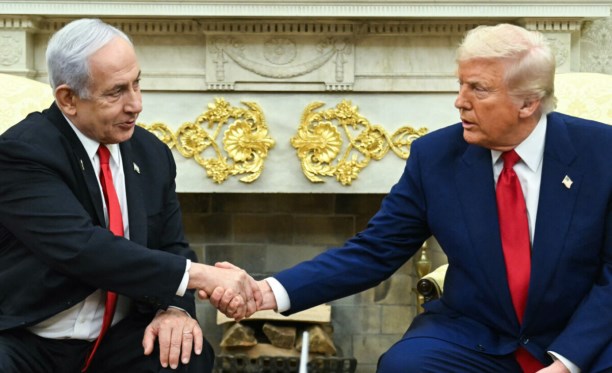In a plot twist that caught many by surprise, Emmanuel Macron, the charismatic French leader, once again found himself at the center of attention during the recent EU leaders’ summit in Brussels.
However, this time, it wasn’t for the reasons he had hoped. As the European Parliament election results were being tallied, Macron’s dominance in the headlines came with an unexpected twist.
Having anticipated a defeat at the hands of French hard-right nationalists, Macron ‘s decision to dissolve France’s national parliament in response was a shock to the establishment.
While he had toyed with the idea after his previous defeat in the general election, few expected such a bold move at this juncture. It is undeniably a high-stakes gamble, especially considering his current position of weakness.
Emmanuel Macron, often describing himself as a centrist and a passionate advocate for European unity, now faces the possibility of working alongside a prime minister from the Eurosceptic far right.
Marine Le Pen, portrayed as his political nemesis, wasted no time in declaring her party’s readiness to govern.
Although it is not unprecedented in France for the president and prime minister to hail from different political parties, it would be a historic first if the new prime minister emerged from the far right.
In recent years, Marine Le Pen has diligently worked to broaden the appeal of her political movement and shed its extremist image.
With her National Rally party garnering more than double the number of votes compared to President Macron ‘s Renaissance party in the EU elections, she and her supporters hope to translate this significant victory into triumph in the impending snap election back home.
Their ultimate dream is to pave the way for Le Pen or her immensely popular protégé, 28-year-old Jordan Bardella, to make a significant stride toward becoming the French president—an aspiration she has repeatedly failed to achieve. However, the next presidential vote in France is not scheduled until 2027.
While the hard right and nationalist parties made gains across several European Union member states in the European Parliament elections, their ability to influence future EU policies remains uncertain.
Centrist parties still hold the majority of seats in the EU chamber where crucial laws are debated, modified, passed, or rejected.
The hard-right parties across the bloc will need to unite and consolidate their efforts to have a real impact on EU policy. However, this poses a formidable challenge, as they have varying national priorities and deep-seated differences, including their stance on supporting Ukraine against Russia.
One area where the hard right has already exerted influence is environmental reform, which holds immense importance for the EU’s global climate action agenda.
Despite the EU’s ambitious commitment to being a world leader in climate action, the green parties suffered a significant blow in this EU Parliament vote, losing a staggering 20 seats.
Faced with the pressures of the cost-of-living crisis, EU taxpayers have become increasingly apprehensive and resistant to new environmental regulations that would require them to invest in greener alternatives for their homes and vehicles.
Farmers across the EU have also staged mass protests against what they perceive as unfair and ruinous environmental rules.
Capitalizing on these grievances, the hard right has positioned themselves as the voice of the people, standing up against the perceived influence of “remote elites” in Brussels and national governments.
Consequently, ahead of the EU Parliament vote, several environmental regulations were watered down or rescinded, including those governing pesticide rules. This weakening of green goals might serve as a harbinger of future compromises in environmental policies.
In attempting to predict the influence of the nationalist right in the EU moving forward, it becomes clear that labels alone are often inadequate.
Some hard-right nationalists are adopting more mainstream positions to attract a broader voter base, while an increasing number of center-right politicians are incorporating far-right rhetoric on hot-button issues like migration and the environment to retain their supporters.
Overall, the center-right emerged as the winners in terms of seat count and gains in the European Parliament. However, this headline may not be as attention-grabbing as the debate surrounding far-right advances, which tend to captivate public interest.
As the political landscape evolves, one thing remains certain: the intricate dance between ideologies and aspirations will continue to shape the future of European politics.
Check also;
- Power, Politics, and Checkbooks: The Billionaire Dance In Trump’s Realm
- Biden And Trump Embark On Riveting Border Showdown
Please use the button below to contribute to Newslex Point, Inc. using a credit card or via PayPal.

 Newslex Point News in Uganda, Uganda news
Newslex Point News in Uganda, Uganda news











